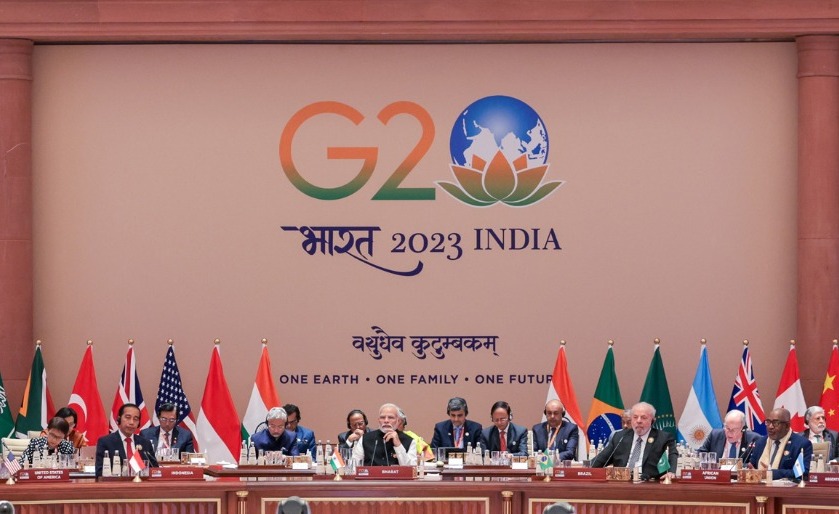The G20 Leaders’ Summit that concluded in Delhi on September 10 stressed seriousness to address the rising temperatures and climate change. The G20 nations committed to urgently accelerate their actions to address environmental crises and challenges including climate change.
One of the key ways to address the rising environmental crisis is through climate financing, a form of fund, specifically meant to address the challenges of climate change through mitigation and climate action.
The declaration adopted in New Delhi reaffirms the commitment to take action to scale up sustainable finance, indicating the importance of financial support for green and sustainable projects. At the Summit, the G20 leaders agreed to pursue tripling renewable energy capacity globally by 2030 and accepted the need to phase-down unabated coal power. It also said that $4 trillion a year would be needed to pay for a green energy transition but did not lay out any pathway to it.
IMF MD Kristalina Georgieva has said that the G20 members must lead by example in delivering on the promises of $100 billion per year for climate finance.
Climate financing for climate change
The developed countries at CoP15 held in Copenhagen in 2009, had collectively committed to mobilising $100 billion per year by 2020 for climate action in developing countries. The goal was formalised at COP16 in Cancun, and at COP21 in Paris, it was reiterated and extended to 2025.
The IMF or International Monetary Fund has so far secured $40 billion to support vulnerable countries through Resilience and Sustainability Trust to build climate resilience.
To achieve the $100 billion goal, the IMF MD suggested strengthening the Multilateral Development Banks and also requested countries to mobilize domestic resources to finance and manage the green transition through tax reforms, effective and efficient public spending, and strong fiscal institutions.
The G20 Declaration urges all the developed countries to fulfil their commitment to at least double their collective provision of adaptation finance from 2019 levels by 2025, which is in line with the objectives of the UNFCCC and the Paris Agreement.
The declaration noted the developing countries have a requirement of $5.8-5.9 trillion in the pre-2030 period, particularly to support the implementation of their emission reduction targets.
UK commits $2 billion to UN-backed climate fund
The Group of 20 nations adopted a wide-ranging declaration that includes reiterating its commitment to scale up sustainable finance to help developing countries reduce their carbon footprints. It said $5.8-5.9 trillion is required by developing countries before 2030, in particular for their needs to implement their emission targets.
Britain committed to provide $2 billion to the Green Climate Fund (GCF) to help developing countries cope with climate change. The Green Climate Fund (GFC) is the world’s largest such fund that was set up under United Nations’ climate change negotiations to help channel money needed by poor states to meet their targets to reduce carbon emissions, develop cleaner energy sources and adjust to a warming world.
India’s commitment
India has been an advocate for climate financing all throughout. It has even called out developed nations on several global platforms to contribute towards climate financing and take responsibilities for their actions, that has environmental implications on developing nations.
India’s G20 declaration was significantly focused on climate change. India also played a vital role in promoting clean energy during the Summit, with the launch of a Global Biofuel Alliance. The alliance supports the world’s energy system towards net zero targets. It is aimed at strengthening the circular economy, contributing to energy security, global Sustainable Biofuels Producton needs to be triple by 2030.
India’s push for the Global Biofuel Alliance aligns with its broader commitment to sustainable energy and reducing carbon emissions. The country is advancing its efforts to increase the use of biofuels, aiming to become carbon neutral by 2070 and doubling nationwide ethanol blending in gasoline to 20% by 2025.
Further, the G20 nations also united for a sustainable and resilient ocean-based economy! They endorsed the Chennai High Level Principles for a sustainable and Resilient Blue/ Ocean-based economy.














